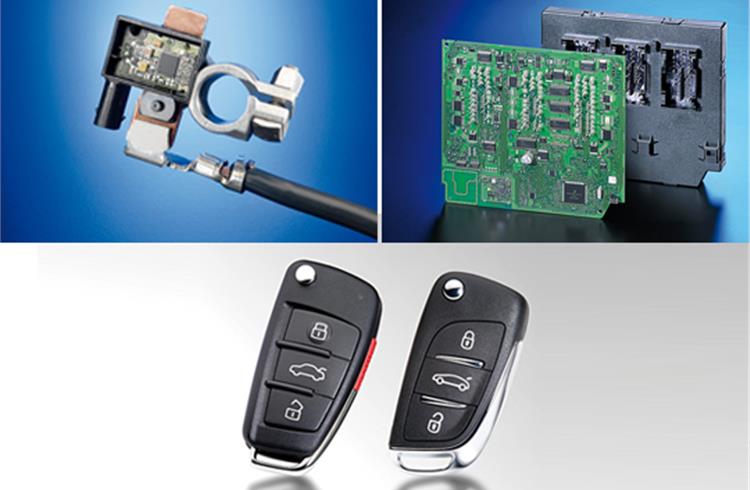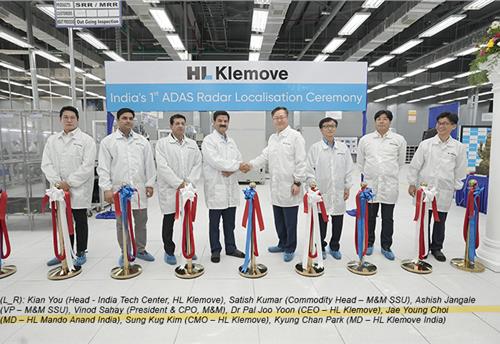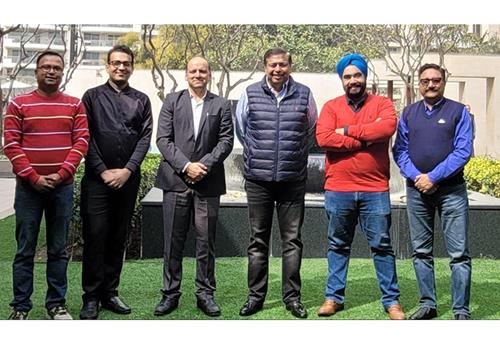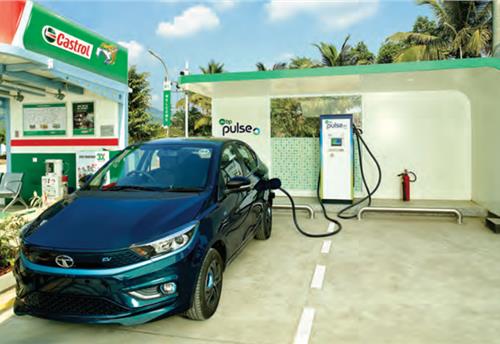2012 Electronics Special: Hella's local approach targets global impact
One of the first product launches is slated for FY 2013-14, the Pune development centre is also supporting the development of energy management products like DC/DC converters as well as passive entry and keyless-go systems.
The R&D centre is involved in both global and local projects and is developing advanced body controllers for European and US trucks and radar technology-based driver assistance systems for international markets. Its role in the global projects is to support global teams and build competence in required domains, which can be further utilised for executing local projects. Standard development processes, tool chain and international quality standards are followed to meet customer requirements worldwide.
One of the first product launches is slated for FY 2013-14, the Pune development centre is also supporting the development of energy management products like DC/DC converters as well as passive entry and keyless-go systems.
These are expected to go on stream during FY 2014-15. Besides, other products are being leveraged from Hella’s worldwide production network including rain light sensors, electrical vacuum pumps, intelligent battery sensors, rearview cameras and oil level and quality sensors.
Localisation is key
Hella’s corporate strategy is to develop different regions for different products. If a chance for localisation presents itself, then it is leveraged from a part of the world where Hella's production facilities exist like the US, China or Germany. Based on the customer’s local demand, these would be further localised over the next few years. For instance, the US is the lead location for fuel control modules that enable fuel reduction of two to three percent. The product that is currently under localisation in India will be produced at Hella's production unit at Dhankot near Gurgaon.
Modular approach
Further, the supplier is pursuing a modular approach towards its customers in terms of body controllers, remote keyless entry and CAPE in emerging markets. This allows a higher level of standardisation for normally customised products by still providing a flexibility of customer-specific applications. It helps reduce the cost and step up the reliability of products while cutting down the development lead time, according to Holger Schramm, director sales and marketing of Hella India Electronics (pictured).
Schramm feels that the demand from Indian OEMs is initiated by the challenges they face currently. For instance, government regulations on environmental targets and fuel efficiency as an offset of the spiralling fuel prices as well as cost effective and scalable solutions on comfort and safety. Additionally, an upcoming demand for energy management is perceived to handle the growing electronics features in vehicles as well as to support Hella’s hybrid and E-vehicle developments. The demand for products follows the global market strategy and the grade of innovation at Hella is perceived as rather fast.
“Actually here the approach differs from the global market as India is ready for application development and is seeking new ways of integrating old technologies to be more cost competitive. This is a learning process for suppliers as well as for the OEMs,” says Schramm.
He visualises B-segment cars in India to ride high on body electronics, remote keyless entry and even CAPE systems in the future. Also, the market for products that contribute toward fuel efficiency like fuel control modules and electrical vacuum pumps would also drive demand for electronics.
The difference would be witnessed in the range of availability as comfort features are expected to be introduced 100 percent in the D segment whereas B-segment cars are likely to offer a higher-priced version with add-on features. However, when it comes to fuel efficiency, the difference is not expected to be so marked as there would be a greater need for cost-sensitive vehicles as these products help to reduce the cost of ownership.
 |
The challenge would be to produce comfort features that are cost competitive for B- and even A-segment cars. Schramm is of the opinion that Hella with its focus on a modular product range would score in this market.
At Hella, products are divided into three electronics groups with a high content of electonicisation witnessed in body controllers while sensors possess a medium level of electronics within and actuators operate in an electro-mechanical mode.
While electronic products are normally developed with customer-specific requirements, electric/electronic architecture components are mostly ‘out of the shelf’.
Reducing complexity
The company feels that it is important to impart flexibility to its customers to adapt its products to their needs but the challenge remains to keep this effort to the lowest. For instance, passive entry and keyless-go systems are developed in China as a modular approach that meets the requirements of a range of car segments varying from B to D. “In future, we will also provide a solution for A-segment cars which is a customer-driven demand,” elaborates Schramm.
To reduce the complexity of components, products are increasingly rolling out with high integration of functionalities, a case in point being the rain, ambient light, front light, sun load and humidity sensor that reduces the wiring within as well as accrues in space saving with a single sensor leading to a number of operations. Modularity also beefs up the reusability of the electronic product while reducing the development complexity and simplifying future integration of higher functionality.
Meanwhile, Hella prides itself on introducing a number of technical solutions in the market like the electric vacuum pump, contactless inductive sensor for several applications including accelerator pedal sensor, torque, steering angle sensor as well as intelligent battery sensor.
SHOBHA MATHUR
RELATED ARTICLES
Branded content: HL Klemove inaugurates first Local ADAS Radar Manufacturing Unit in India, marks a significant achievement in “Make in India” initiative
The inauguration ceremony was held in the presence of Vinod Sahay, President and CPO of Mahindra & Mahindra Ltd. and Dr....
BluWheelz to 'Green Up' logistics sector
With their EVs-as-a-service solution, the startup is playing it smart with costs and looking to electrify the entire seg...
BRANDED CONTENT: Spearheading the EV revolution in India
Jio-bp is a joint venture between Reliance Industries and BP PLC where both entities have married international expertis...





 By Autocar Pro News Desk
By Autocar Pro News Desk
 02 Jul 2012
02 Jul 2012
 3026 Views
3026 Views









